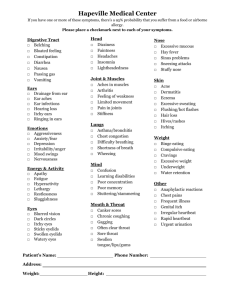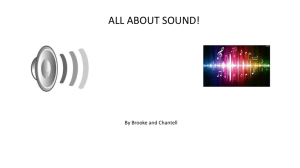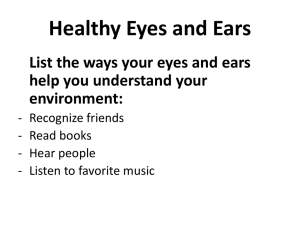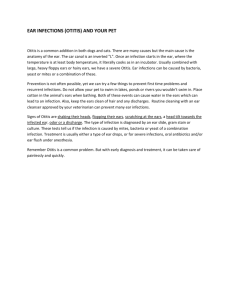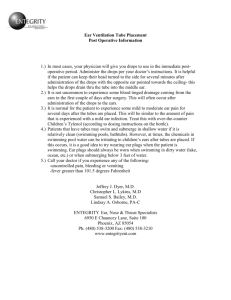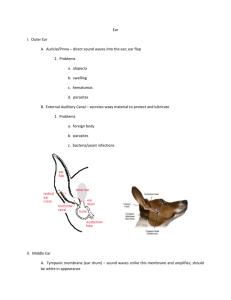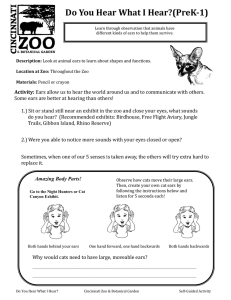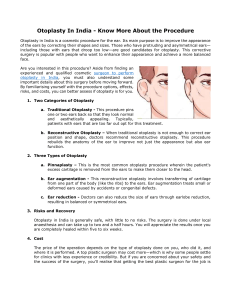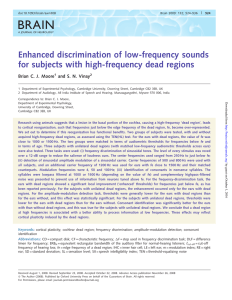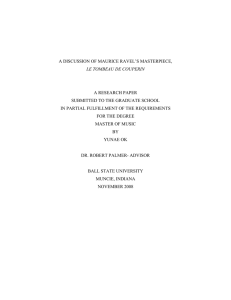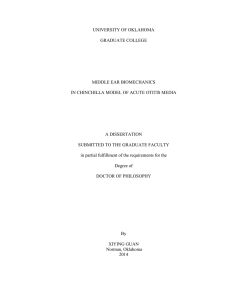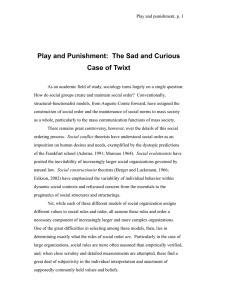Word
advertisement
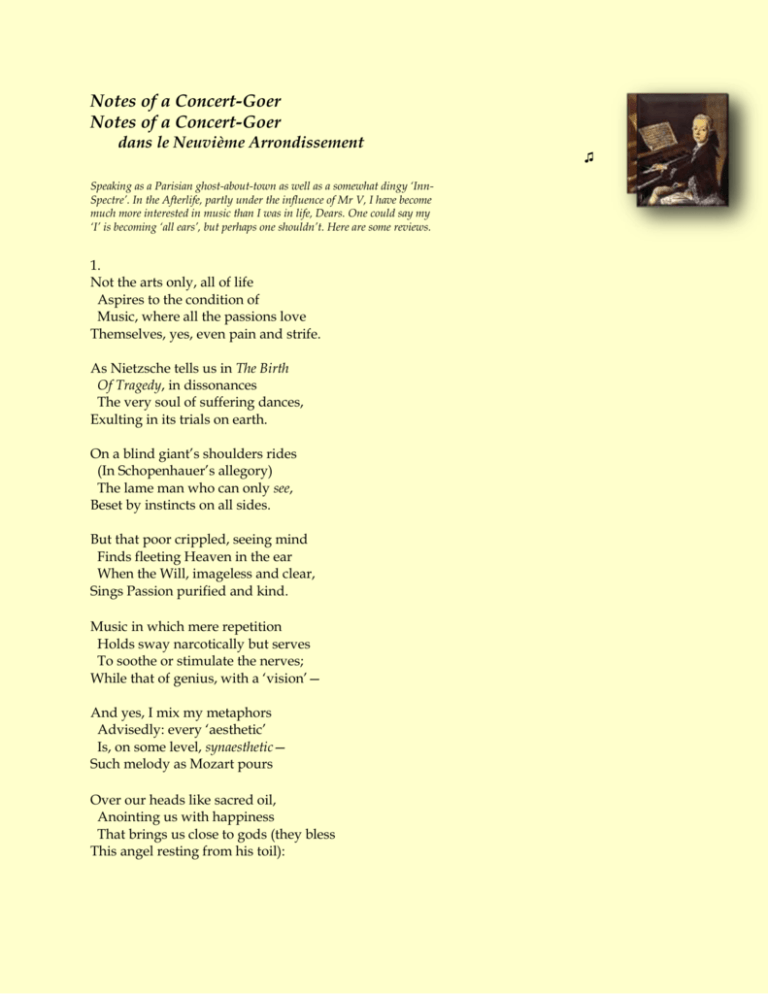
Notes of a Concert-Goer Notes of a Concert-Goer dans le Neuvième Arrondissement Speaking as a Parisian ghost-about-town as well as a somewhat dingy ‘InnSpectre’. In the Afterlife, partly under the influence of Mr V, I have become much more interested in music than I was in life, Dears. One could say my ‘I’ is becoming ‘all ears’, but perhaps one shouldn’t. Here are some reviews. 1. Not the arts only, all of life Aspires to the condition of Music, where all the passions love Themselves, yes, even pain and strife. As Nietzsche tells us in The Birth Of Tragedy, in dissonances The very soul of suffering dances, Exulting in its trials on earth. On a blind giant’s shoulders rides (In Schopenhauer’s allegory) The lame man who can only see, Beset by instincts on all sides. But that poor crippled, seeing mind Finds fleeting Heaven in the ear When the Will, imageless and clear, Sings Passion purified and kind. Music in which mere repetition Holds sway narcotically but serves To soothe or stimulate the nerves; While that of genius, with a ‘vision’— And yes, I mix my metaphors Advisedly: every ‘aesthetic’ Is, on some level, synaesthetic— Such melody as Mozart pours Over our heads like sacred oil, Anointing us with happiness That brings us close to gods (they bless This angel resting from his toil): ♫ Such music is our sacred bread, Or should be consecrated thus, Estranging and enlarging us, Joining the living and the dead In tentative and secular Communion: so intense, so clear, Tuned to the inner eye and ear, It sings in candles like a star, Shines like brass fanfares! Though the bliss Of the young dancer fades, alas! In moments musicaux, the ‘was’ Is momentarily an is. 2. After an Evening of Mahler Suppose that music, audible, Is only writing in the ear; Then writing, it is equally clear, Is music intellectual, The melody that thinking makes, Or rather the polyphony Of its conflicted symphony, Mahler-esque, dark, where lightning breaks Only at times on the overbearing And rather sophomoric Storm And Stress at the loose edge of form. Ah, best when all the pompous blaring Of brassy fanfares and the dense Black Nietzschean moustachioes Of Nihilist dissonance find repose In the Slow Movement, where the tense, Brow-beating histrionics and Heroics give way to a free, Pure flow of complex reverie And thought with thought walks hand in hand Through Alpine glades in bracing air, Crisp vistas of nostalgia, With cow-bells tinkling, and ah! ♫ Nietzsche and God are with us there. 3. Chopin Recently I heard Rubinstein’s (Arthur’s, I mean) Chopin: It is Sublime. Chopin! Strange, how in his Rubinstein. As distinct from the Russian composer-pianist Anton Hands a brief nocturne redefines The world, and modulates its key. One’s hearing grows chromatic: birds In the trees trill in minor thirds, Full of Polish melancholy. ♫ Refined, and yet through Marsyas’ throat His pain at times forced melody. For resolution endlessly Deferred is the true modern note. 4. Richard Strauss But, Beecham’s Rosenkavalier! At Covent Garden I was present And through the ears of a quite pleasant Young man heard all, and shed a tear ♫ For the great Marschallin, and scoffed At Baron Ochs when Mariandel, Whom on his knee he tries to dandle, Proves, when the sly disguise is doffed, To be the man who steals his catch. Margarethe Siems lived the rôle With her clear notes and tender soul, And what a queenly She to watch! And ah, the splendid final scene, As the celesta silvers over, The rose-red fire that burns ‘twixt lover And lover when the Marschallin Leaves Sophie and Octavian Alone together, is a dream’s Dream-consummation. And those gleams Of dissonance? They are the wan Beginning with the duet, ‘Est ist ein Traum’. Smile of Princess Marie, resigning Her claim with an auf Wiedersehn To youth we shall not see again. Clouds with them take their silver lining When into nothingness they fade, Leaving in memory a rack, At most. She thinks (and turns her back), Es ist vorbei! Yet, how well-played! 5. Fauré Last night I went to hear Fauré: Piano Quartet in C Minor. In chamber music there’s no finer Expression of Provençal gai ♫ Saber (save in the Violin Sonata, also wrought when he Was a young man passionately In love). The scherzo, sparkling in The mind as Keats’s beaded bubbles Brim full the cup of vintage wine, Moves in an agile, elfin line Through that love’s dark and gathering troubles: Rebuffed proposal, heart’s wound, rage And sorrow, the dispiriting chore Of running the Conservatoire, The politics… The War. Old age. ♫ 6. Debussy Now the mysterious L’Après Midi d’un Faune wafts through the gloom And like a poisonous flower in bloom Nijinsky with himself doth play! (His leaps are such miraculous things: He seems to hover in mid-air Before descending; one could swear Hermes had lent the boy his wings!) Théâtre du Châtelet, May 29, 1912. Ah, quel succès de scandale! 7. Ravel and l’Enfant et les Sortilèges ♫ And as for those svelte ear machines Of the Swiss-Basque Maurice Ravel, That paradis artificiel Of pastoral wallpaper scenes Torn by a child in petulant rage, Where shepherds beating on a tabor Make soft lament for love’s lost labour, And innocence must turn the page And hear the woodwinds’ mortal quavers: I rode in one, vicariously, Through a young lady named Marie At the Opéra last month. One savours The rich, expressive ether of this Precise nostalgia of the ear In an aloof child engineer Who prizes a frail, guarded bliss, The benediction falling on Him softly in the shadowy garden, When, hurt, he gains the creatures’ pardon And he and innocence are one. 8. Vaughan Williams A pupil of Ravel’s. I astral-travelled to Gloucester Cathedral to hear the premiere, September 1910. Fantasia on a Theme by Thomas Tallis: haunted as an old chapel, The strings sound. The old story, apple And fall and death, and distant promise… ♫ 9. Young Turks But in a way that makes one wince, key Relationships are savagely Distorted, the ears rhythmically Assaulted by the mad Stravinsky! (Diaghilew’s a man of charm And money. Gawkers stand on chairs To watch pariah and homme d’affaires Walk by the cafés arm in arm.) I attended the second, placidly received performance of The Rite of Spring. Since its raucous debut it had quietly metamorphosed into a cornerstone of the Repertoire, Dears! ♫ An impresario and art-collecter, interested in acquiring some of Aubrey’s erotic drawings. * But when the gate of light’s unlocked And I walk home into the Vast, Let it be to the mystic last Strains of Schoenberg’s ♫ ♫ Sprechstimme, Death-pale MadThe twentieth a glissando, shrill, expressionist nightmare, clowning of century is ill. … The Serialist Schoenberg and his Disciples [A screed against Serialism and the ‘Emancipation of the Dissonance’, by the amateur musician, Mr V.] Beyond the highest tessitura Of an Expressionist soprano The high, thin keys of the piano Make a cold musica obscura, Sound of the interstellar void, A black noise as of some dark matter Whose hymns to itself make glass shatter: This is the music I avoid— That is, of the twelve-tone variety. In dodeco-cacophony Of an affective palette free Of every affect save anxiety, It blandly ignores the nature of The intervals. So dissonance Must be freed? What, freed of nuance? Insults to hearing win no love. Theory’s Pyrrhic victory Over the ear only accents The split ‘twixt intellect and sense In fractional overtones so high That they amount to a dog-whistle Music for dogs, and the dogs do Not like it. And our poor ears, too, Feel they are suffering a dismissal. The hexachord is universal, An aural grammar Nature ingrains In foetal ears and foetal brains. By a mechanical reversal To embitter music, scorn the natal Desire for consonance, and blame Ears for not relishing the game, Will to this music prove quite fatal.
